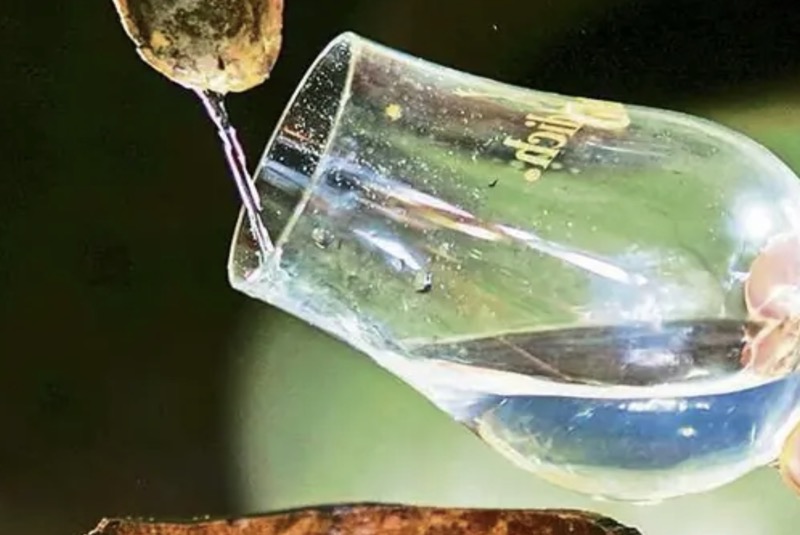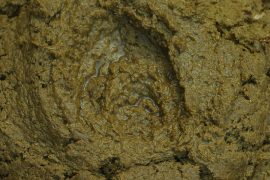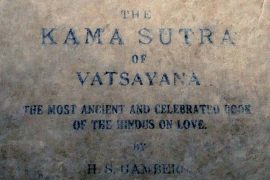Can you think of an alcoholic drink that will get you drunk but will not leave you with a hangover the next morning? Can you think of a drink—recommended by the locals—to combat common colds, coughs, and flu, a traditional medicine that warms up the body and works better than cough syrup to clear the respiratory system?
Cashew Feni. It’s a drink that is exclusively produced in Goa—nowhere else in the world.
On March 23, 2009, a celebration erupted across Goa, a state that is never short of reasons to rejoice. Feni was the country’s first alcoholic spirit to be granted Geographical Indication (GI) designation. It is also the first product from Goan soil with such status. The Goan government began the process of designating it a historical drink in 2016.
Geographical Indication status protects the most famous product of Goa from being manufactured by impostors from other places. The status is a sign used on goods such as Darjeeling tea, which come from a specific region, whose characteristics or reputation reflect its place of origin. The Goa Cashew Feni Distillers and Bottlers Association worked for seven years to get GI status for Feni.
However, the popular Goan drink has culminated in an unpopular image. People often approach Cashew Feni with caution because of its reputation as a strong, harsh, and smelly drink. ‘[T]he drink has an aroma that is powerful enough to immobilise an elephant,’ writes Naresh Fernandes, a Feni Lover, author and journalist. Whenever Fernandes introduced the drink to people, he received extreme responses. ‘[F]riends have sometimes made exaggerated retching sounds; others have played dead, rolling on the floor as they clutch their throats theatrically,’ he said.
People are denying themselves a part of the blissful pleasures of the Goan culture by denying Feni, says Fernandes. ‘When a good feni glides over the tongue, the fragrance of a hundred cashew trees floods the mouth, the waves of the Arabian Sea lap up against your feet, and a fadista bursts into song on the edges of your brain.’
The term Feni comes from the Sanskrit word phena, which means froth. When shaken in a bottle and poured into a glass, the drink bubbles, creating a little froth at the top. Feni, a traditional liquor, is made from fermented cashew apple juice. It has no organic or artificial tastes and has been a part of Goan cuisine for over 400 years.
Coconut Feni and Cashew Feni are the two most popular kinds of Feni in Goa. Coconut Feni is older than Cashew Feni, in terms of production. Locals originally prepared Feni using coconut, which is abundant in Goa. On the other hand, Cashew Feni is a benefit India reaped from the Columbian Exchange.
Columbia Exchange is the name for the movement of agricultural goods from Latin America to the rest of the globe, which occurred after Christopher Columbus’ trip to the Bahamas in 1492. The cashew fruit, from which Feni is made, is native to northeastern Brazil. It was introduced to Goa by the Portuguese. As early as 1514, Portuguese nobles in Goa were sipping urrack, the first distillation of Feni, says Dwijen Rangnekar, professor of law at Warwick University, UK.
A three-step distillation process produces the signature Cashew Feni. First, cashew apples are manually crushed on a rock shaped like a basin. An earthen or a copper pot buried deep below the ground collects the juice from the crushed cashew apples, which runs out of the basin for fermentation.
The juice is then distilled by boiling over a fire. Only four per cent of the fermenting juice produces alcohol after it passes through several stages of vaporisation and distillation in the pot. Urrack is the light and diluted juice produced during the initial step of the distillation process. Cazulo is the result of the additional distillation of Urrak. It is a powerful intoxicant and cannot be found easily in the local market. Feni is the last result of distillation.
Feni has a high alcohol level—about 43 to 45 per cent—making it an extremely potent drink. The aroma of the drink, which frequently turns off consumers, is an indication of a well-crafted Feni.
Feni is supposed to be introduced in a certain way due to its strong flavour, according to Karl Fernandes, a mixologist and beverage consultant in Goa. ‘People really appreciate feni as long as they are introduced to it in the right way,’ he says.
Fernandes says the taste of Feni is ‘dominated by the flavour of cashews along with a hint of black pepper.’ He compares the drink with chillies, ‘hard to consume by itself but flavourful as a spice.’
Feni can be used as a cocktail spirit. It goes amazingly well with tropical sweet fruits like mango, pineapple, gauva, lychee, jamun, passion fruit; citrus fruits like orange, lime, grapefruit, pomelo, herbs like basil, mint, rosemary, and spices like black pepper, cloves. The best cocktail to try is cashew feni with a hint of lime, salt, slice of chilli (optional) and lemonade.
Coconut Feni, on the other hand, has a subtle flavour with a sour and creamy undertaste. According to Karl Fernandes, it is more suitable for people’s palate and can be sipped neat on the rocks.
A 200-year-old Portuguese law regulates the procedure of producing Cashew Feni. Fernandes attributes the cultural importance of Feni to these regulations, without which the drink would become yet another commercialised spirit in the market.
Feni is as distinctive and precious to Goa as Tequila is to Mexico, Cognac is to France, Champagne is to France, or Cachaca is to Brazil. It comes with its drinking history and culture. In Sri Lanka, Coconut Feni is comparable to arrack. Cashew Feni is exclusively produced in Goa and nowhere else, making it a unique spirit on the shelf.
-30-
Copyright©Madras Courier, All Rights Reserved. You may share using our article tools. Please don't cut articles from madrascourier.com and redistribute by email, post to the web, mobile phone or social media.Please send in your feed back and comments to editor@madrascourier.com











